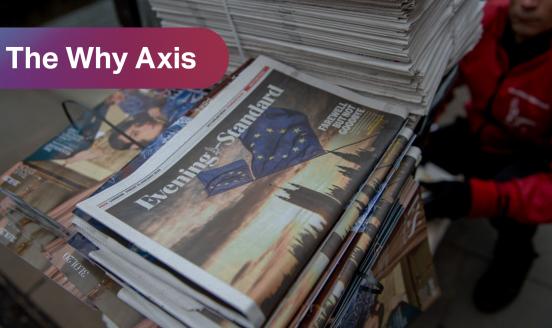An accounting perspective on financial globalization
Sometimes it takes a narrow lens to distinguish the true features of big objects. The future of financial globalization, whatever one’s perspective on its dangers or merits, is one of the biggest questions of our times. By contrast, accounting is often perceived as a boring technique. But the policy debate on accounting and especially on International Financial Reporting Standards (IFRS), which are replacing local accounting standards in an increasing number of countries, entails large stakes and important lessons for global financial integration.
Many observers have recently awakened to the importance of accounting because of the controversy over the mark-to-market principle (or fair value accounting, as accountants prefer to say) and its impact during the financial crisis. In late 2007 and early 2008, several prominent financiers and analysts protested that the rapid decreases in the market prices of US mortgage-based securities and other assets were meaningless and caused by liquidity shortfalls. According to them, marking these assets to reduced amounts in balance sheets would precipitate an unnecessary crisis. With hindsight, we know this analysis was wrong. The reason for the reduced market prices was not temporary illiquidity but permanent loss of value, and transparency was a better option than delaying the necessary recognition of losses. Regulatory capital ratios (set by banking supervisors) may be adapted to filter the short-term volatility of market prices and avoid pro-cyclical effects, but financial accounting should provide investors with a reliable reflection of market conditions at the time of measurement.
However, financial-industry executives and their lobbyists were able to obscure the debate to the extent that many people in Europe, and some in America, remain sincerely convinced that fair value accounting was a major aggravating factor in the crisis. A similar sequence had happened a few years earlier in the US, when corporate advocates managed to delay the accounting recognition of the cost of stock options for nearly a decade. This highlights a feature of accounting that extends to most other areas of financial regulation: because the issues are so technical and jargon-ridden, and the potential financial consequences are so large, public debates and policy decisions are often captured by special interests. Therefore, governance arrangements are crucial, and do not easily fit a clear-cut division of roles between the public and private worlds.
The governance of accounting standard-setting has widely varied over time and across countries. The general trend of the past few decades has been toward standard-setters that are more independent vis-à-vis governments and special industry interests. But the challenges related to IFRS are unprecedented because these standards are set at the global level. There is no global government to oversee the IFRS Foundation, the organization that sets IFRS standards, or to enforce consistent IFRS implementation across countries. Nor is there any coherent global representation of investors, whose information needs IFRS are primarily meant to serve.
Answers may lie in the IFRS Foundation making more efforts to organize the global investor community, and setting incentives for individual jurisdictions to adopt and enforce IFRS to foster genuine cross-border comparability of financial statements. At this point, it is still too early to judge whether the attempt to make IFRS the dominant global accounting language can succeed on an enduring basis. But there are already important lessons that have wide significance beyond the community of accounting professionals.
First, global financial rules are not a Utopian vision but a reality. The initial success of IFRS has been remarkable. Their adoption has been smooth and has generally improved financial reporting quality, starting in the European Union in 2005 but increasingly now in other countries as well. Given the right conditions, financial regulatory harmonization can work across continents.
Second, the crisis has increased the need for public oversight of financial rules, but it is not yet clear how this can be done effectively and consistently. A so-called monitoring board of public entities has been created in 2009 to control the IFRS Foundation, but its construction is awkward and raises concerns about its legitimacy and future effectiveness. For the foreseeable future we will have to rely on trial-and-error experimentation for international financial regulatory bodies, which in most cases cannot take existing national arrangements as a direct model.
Third, those global bodies that exist have yet to adapt to the ongoing rebalancing of the financial world. The IFRS Foundation is registered in America, its staff is in London, and it still caters largely to audiences in the US, European Union and Japan even as large emerging economies represent a rapidly increasing share of global finance. We don’t know whether or how China, India and others will take responsibility at a global level for transparency and integrity in financial reporting. But if efforts to empower them in formal global institutions are not accelerated, it is hard to see how such institutions can fulfill their potential.



